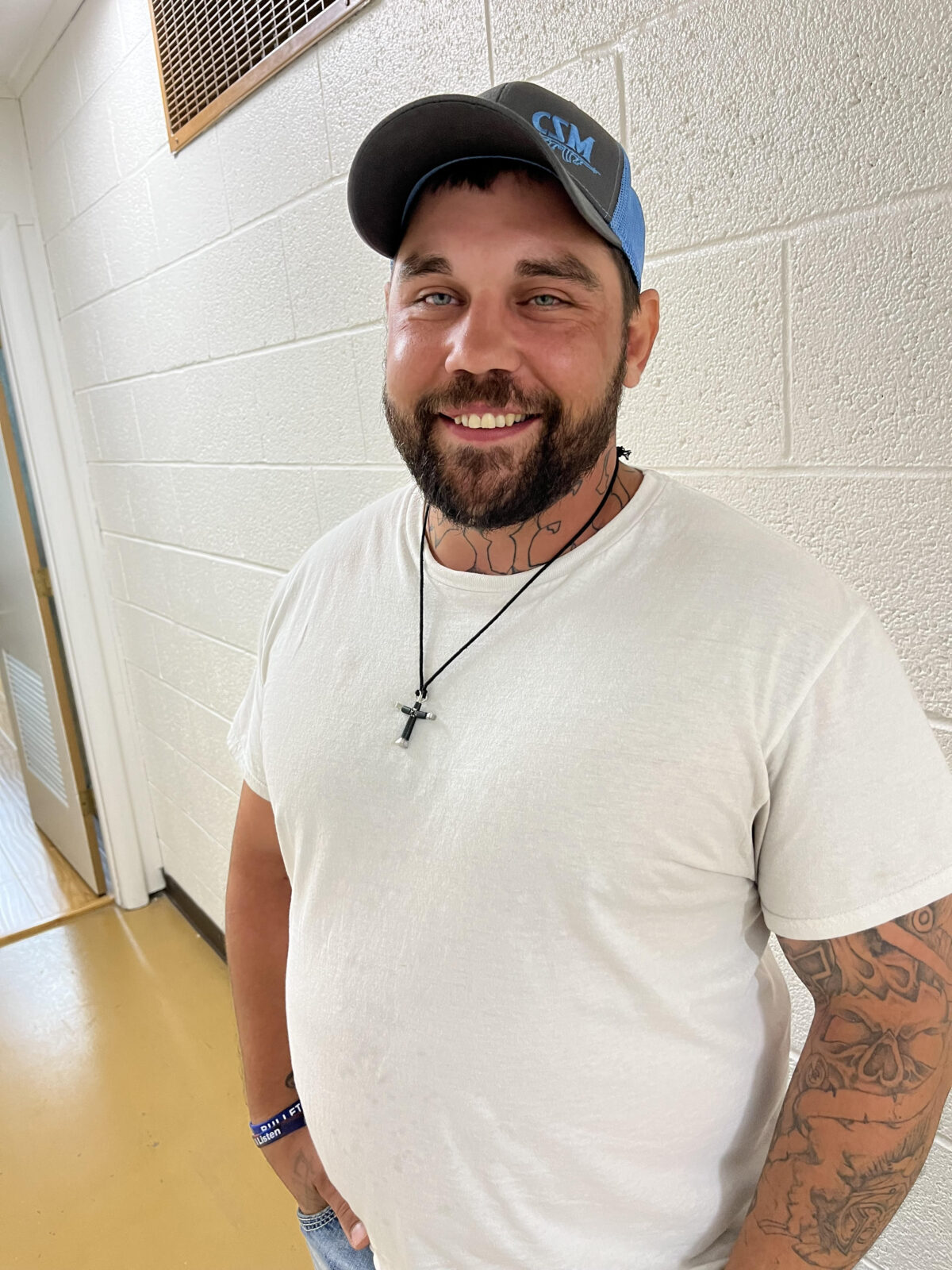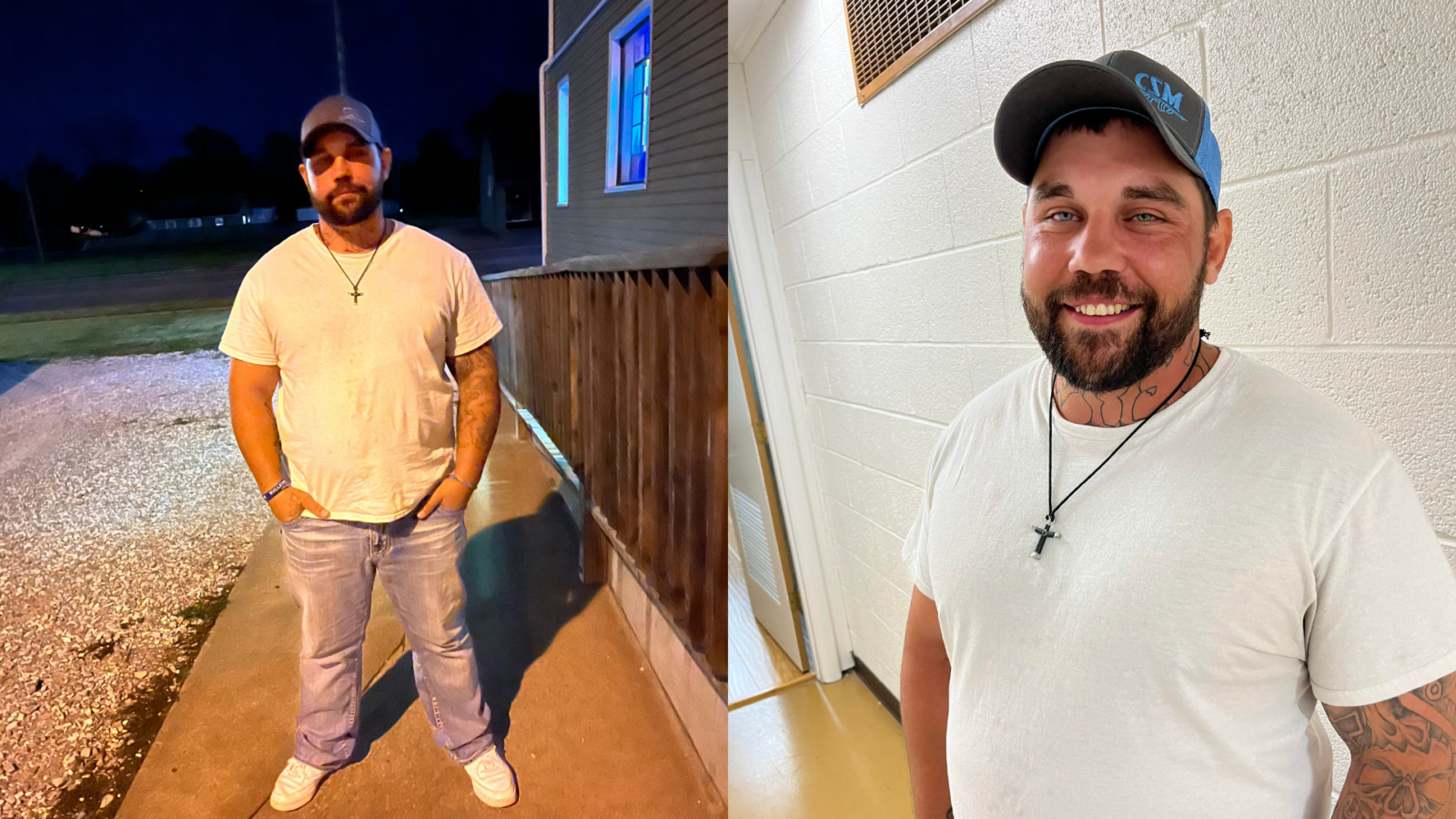The next several columns are about my first time living in a house with fourteen other men, almost all felons — and enjoying it.
In three programs now I’ve realized my minimum for getting to know a group of homeless people is four days. All fourteen in Joplin, Missouri, were part of the Forge Center for Virtue and Work, a tough, 16-month Christian program. One Forge resident I happened to talk with only once — I don’t want to embarrass him so I’ll just call him B — right away asked, “Want me to give my testimony?”
It seemed B knew what parachuting-in reporters expect. He quickly told of his life in a group home at age twelve, then his use of alcohol/meth/cocaine and his two DUIs. Then he happened to go to a revival meeting where the pastor pointed at him and said, “Come up here.” He did. The pastor said, “Your life will be completely different.” B cried and was “overwhelmed with joy and Jesus.”
I don’t doubt at all the overwhelming and the joy, but it sounded practiced. Sideline reporters at football games usually garner cliches. Similarly, stopping at a homeless shelter place for a ten-minute interview often generates responses that may be true, but may not be. Twenty-five years ago I learned some things about particular homeless men by bowling with them. Last fall, when I ate, played disc golf, and went to Bible studies with men in the Forge program, I heard about meandering routes to changed lives.
After referring to one man as B, I could call the second man A, but I’ll use his name, Austin Bond, because he wants to use his past as a bridge to a future that includes counseling young men living as he once did. Besides, Bond advertises his past with seven big letters tattooed on his throat — LAWLESS — and his his felony arrest record on Truthfinder.com backs up what he said.

Bond attended Fort Scott Community College in Kansas. He was on the rodeo team with specialization in bulls and bucking horses: Both metaphorically and physically he had a full ride scholarship. Rodeo is the unusual college sport in which athletes can be on their college teams and can also earn big bucks on the Professional Rodeo Cowboys Association circuit. The Fort Scott Tribune in March 2009 praised “freshman Austin James Bond, a bareback rider.” Bond said he earned $90,000 during his freshman year, and a sixth-place finish in the national Professional Rodeo Cowboys intercollegiate finals was “the pinnacle in my life.”
Bond’s Facebook page self-definition was not all that unusual for some college students: He “studies Cold Beer, Wild Horses, Wild Women and Personal Training/Nutrition/Weight-Training.” Ten years ago, though, six motorcycle gang members killed his 24-year-old stepbrother. Bond “couldn’t handle that death. It took me six years to go to his grave, and I’ve only gone once.” He said he once put a 9 mm Makarov in his mouth but couldn’t pull the trigger. He merely drove recklessly, fought in bars, used and sold drugs, and “had a death wish.”
Bond married in 2016 and cleaned up his life for a while, working in masonry and loving being a dad. Then he injured his back and became addicted to Oxycontin. He said is marriage also fell apart and his life became “doing drugs, turning wrenches, listening to rock and roll.” His Facebook page bragged, “I’m my own BOSS!… making lots of money,” but in 2019 it displayed a turnaround: He hoped to “sell used bronc riding gear.”
Then came wild adventures that he breathlessly described: “going to the casino at four a.m. on my motorcycle in January… just bought a pistol, no driver’s license… cops chased me through woods… I ran two miles, no flashlight…. police had flashlights — just as I was about to shoot them, they gave up….They took my motorcycle. I went to get it. Cops were waiting for me.”
The LAWLESS tattoo represents well much of his past decade, but post-jail he entered Forge’s program of work and study. After sitting with him through daily Bible studies and listening to him a lot, I don’t think he’s unrealistic in hoping to communicate his new understanding to people unlikely to show up at church: “Preachers in penny loafers, slacks, and button-down shirts can’t do what I do. I can help people who won’t listen to those penny loafers.”
